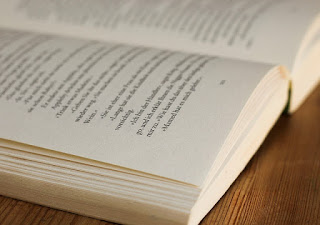What Can I Do With My Novel?
by Rosemary Johnson
What does a novelist do when he or she has finished writing
his/her novel? (This is the situation in
which I find myself now.) He/she should
edit and revise it. Of course. And he/she should find beta-readers to read
and suggest edits. But then what? One of the novelist’s options is to enter competitions.
Although it is not possible to compare the number of entries received in novel competitions with the number of regular submissions arriving on publishers' desks, the competition judge must read your work in order to judge it. (Of course, if he/she forms the opinion after a few pages that your novel is not a runner he/she will put it down immediately.) Editors and publishers on the other hand may throw regular submissions from new and unpublished writers straight on to the slush pile, unread. Another reason for considering comps is that most novel competition prizes include some sort of professional
editing or critique. A writer paying for
editing himself/herself may part with several grand.
The novel competition which is at the moment being promoted most
effectively is the Curtis
Brown First Novel Prize. This is
open only to UK or Ireland residents who are not currently represented by a
literary agent and whose novels are currently unpublished. The prizes are to die for, six in total and
the first-placed winner will be offered representation by Curtis Brown plus a prize of
£3000. The deadline is midday on 1 August
2019. To enter, submit the first ten
thousand words, plus a synopsis of up to 400 words. Ah, the synopsis! The synopsis, oh dear!
Another novel competition worth looking into is the Page 100 Writing Competition,
promoted by Louise Walters Books. The
winner will receive a full editorial report of their first three chapters or
first 30 pages. For this comp, which
closes on 29 September 2019, submit page 100 only, even if it begins or
ends mid-sentence (as it probably will) or if page 100 is only a few
lines at the end of a chapter. No
synopsis, then!
There are many other competitions for novelists, with greater
and lesser prizes to be won. Christopher
Fielden is a good place to look for them.
Most novel comp prizes include representation, publication or
editing and most submissions include synopses.
Oh dear, again.
Me, I hate synopses. There
is much advice – far too much advice – about writing synopses on the
internet, and I wouldn’t dream of adding to it - except for this. At the ACW Writers Day in Bath last March, we
were tasked to write a summary of a piece (novel, short story or whatever) in
one sentence, and to make it interesting enough for a publisher or editor to
want to pick it up. This is a useful
challenge. If my novel doesn’t work in
one sentence, it doesn’t work at all. Another point to note is that Curtis Brown suggest that their entrants display their full
creativity in their synopses. Happy
writing. Happy writing indeed.
Meanwhile, don’t forget the ACW Writing for Children Competition. (This is a short story competition, of
course.) ACW is offering three first
prizes (£25 book tokens) for the best entries in three age categories (0-5 years,
5-8 years and 9-12 years). For more information,
visit the ACW website.
Rosemary Johnson has had many short stories published, in print and online, amongst other places, Cafe Lit, The Copperfield Review and 101 Words. She has also contributed to Together magazine. In real life, she is a part-time IT tutor, living in Suffolk with her husband and cat. Her cat supports her writing by sitting on her keyboard and deleting large portions of text.

I read a famous writer's blog recently and she said that the 'first novel' competitions can be a real leg-up, even if you only achieve runner-up or highly-commended.
ReplyDeleteThanks Rosemary. Really useful. The other thing about writing a synopsis for s competition is it forces you to plan the entire novel. Painful (for me!) but very helpful.
ReplyDeleteAre there competitions for non-fiction too?
ReplyDelete